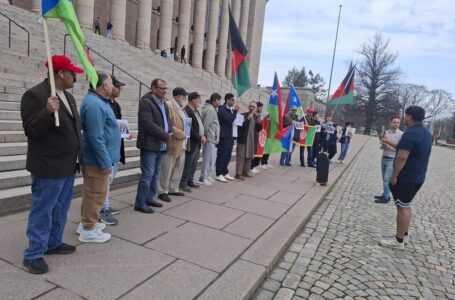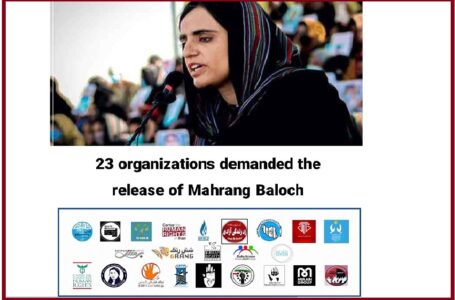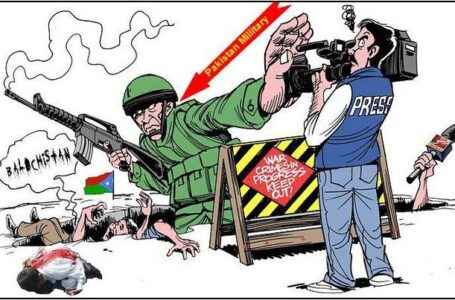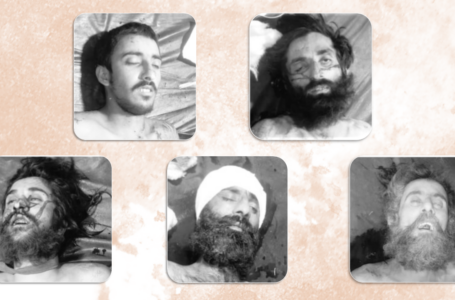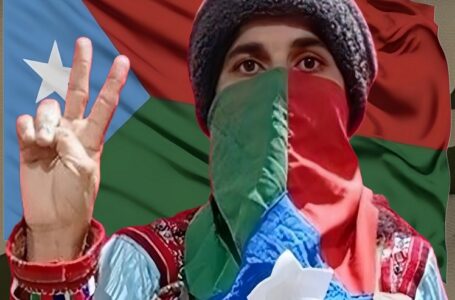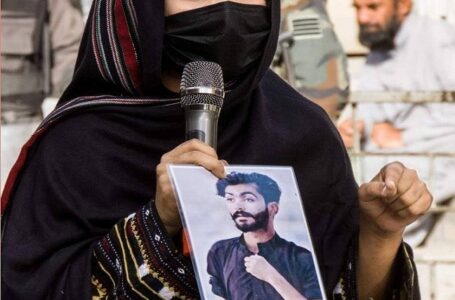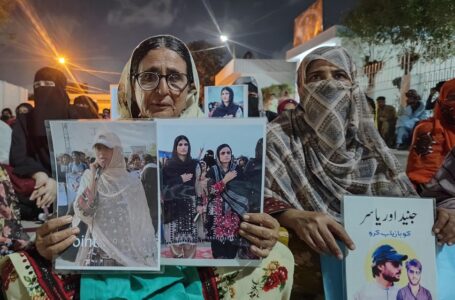Militarisation of Primary Schools in Balochistan by Iran’s army
A Deliberate Diversion

In Balochistan, calls for justice and accountability are sometimes drowned out by deliberate diversions, aimed at deflecting attention from the real perpetrators behind the ongoing Baloch genocide. While the international community and human rights organisations focus on the atrocities committed by the Pakistani state, certain activists from pro-independence political parties are attempting to mislead the public by shifting the blame onto a small and already declining segment of Baloch society—the Sardars.
By no means are the Sardars innocent, but focusing solely on them is both misleading and counterproductive. The Sardars, as products of Pakistan’s colonial system, an inheritance from their British colonial masters after the partition of India, cannot be viewed as the primary perpetrators of the systemic violence and forced disappearances plaguing Balochistan.
This shift in focus, however, does more harm than good. By allowing Pakistan’s state-sponsored violence and human rights abuses to go unchecked, we risk perpetuating the very oppression that the Baloch people are suffering. Diverting attention to the Sardars, rather than confronting the Pakistani state’s war crimes, offers Pakistan a clean slate, allowing it to carry out even more egregious acts with impunity. Whether the state uses Sardar or non-Sardar death squads as proxies, the consequences for the Baloch population remain the same: violence, killings and the continued colonisation of Balochistan.
We must not allow Pakistan to escape the blame for its continuous war crimes and crimes against humanity. The international community and civil society cannot ignore the fact that Balochistan is facing an orchestrated campaign of enforced disappearances, extrajudicial killings, and collective punishment by the state. Instead of wasting time on misplaced blame, the focus should remain squarely on the Pakistani state, whose security forces, intelligence agencies, and army continue to be the true agents of destruction.
A recent case further underscores the need for continued scrutiny of the state’s actions. Asma Jattak Baloch, a woman abducted by a government-backed group from Khuzdar, was reportedly “recovered” by police on February 8, 2025, from the rugged mountainous Zehri area of Khuzdar.
According to a police statement, officers worked diligently to locate her, but the main abductor managed to flee before being apprehended. The police also attempted to shift blame onto Asma’s family for protesting and blocking the Quetta-Karachi highway instead of directly seeking police support and filing an FIR.
After her recovery, Asma was presented before a court, where she was forced to testify that she went with her captors willingly, an assertion made under duress, which she later recanted. In a powerful public address at the sit-in protest set up for her release, Asma courageously revealed that the video she had recorded, claiming her consent, was made under coercion. “I was forced to record that video,” she declared. “It was not my decision—it was done under duress.”
Asma’s testimony paints a chilling picture of the lengths to which the state is willing to go to control the narrative and stifle dissent. She recounted the brutal attack on her family in the dead of night, the physical abuse she endured, and the threats made to her family’s safety if she did not comply. “I was told to go to court and testify that I wanted to be with this person of my own free will,” she explained. “But all I wanted was to return home safely.”
For three days, Asma was kept in captivity, denied basic necessities like food and water, and threatened with violence if she did not comply. Yet despite these harrowing conditions, Asma emerged with a resolve for justice, stating, “I demand justice for what I have gone through.”
Asma’s ordeal is not an isolated incident; it is part of a broader pattern of state-led violence aimed at suppressing dissent, silencing victims, and controlling the narrative of Baloch resistance. Her testimony has sparked outrage, drawing widespread calls for accountability and justice. Human rights organisations, local activists, and Baloch political groups have rallied behind her, demanding justice for all those who have suffered under the Pakistani state’s oppressive tactics.
We must not allow Pakistan to divert the conversation away from the crimes it is committing in Balochistan. While the Sardars may be seen as collaborators, such as Abdul Rehman Khetran and Sanaullah Zehri, they are not the root of the problem. The real issue lies with the Pakistani state and its use of violence to maintain control over Balochistan. To shift the blame is to enable the continuation of the Baloch genocide at the hands of the state.
It is time to demand accountability for the crimes the occupying states are committing in Balochistan and ensure that the voices of the oppressed are heard. As Asma Jattak Baloch has bravely shown us, we must not be silenced by coercion or fear. Justice is the only way forward—and it starts with holding occupying states accountable for their crimes, including the illegal occupation of Balochistan.


